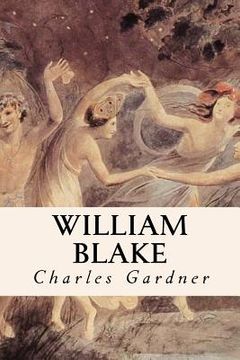Reseña del libro "William Blake (en Inglés)"
William Blake, by Charles Gardner, is a classic and definitive biography of the great English artist and poet, William Blake. To-day a large house stands in Broad Street numbered 28, to which is attached a blue disk announcing that William Blake, Poet and Artist, was born there. The house looks old and shabby, and may well have stood a hundred years; but on inquiry one finds that it is a recent erection, and that of William Blake's actual house not one stone has been left upon another. One walks through Broad Street and its neighbouring streets hoping to see at least one group of buildings as Blake saw them. William Blake (28 November 1757 - 12 August 1827) was an English poet, painter, and printmaker. Largely unrecognised during his lifetime, William Blake is now considered a seminal figure in the history of the poetry and visual arts of the Romantic Age. What he called his prophetic works were said by 20th-century critic Northrop Frye to form "what is in proportion to its merits the least read body of poetry in the English language".[2] His visual artistry led 21st-century critic Jonathan Jones to proclaim him "far and away the greatest artist Britain has ever produced".[3] In 2002, Blake was placed at number 38 in the BBC's poll of the 100 Greatest Britons.[4] Although he lived in London his entire life (except for three years spent in Felpham), [5] he produced a diverse and symbolically rich oeuvre, which embraced the imagination as "the body of God"[6] or "human existence itself".[7] Although Blake was considered mad by contemporaries for his idiosyncratic views, he is held in high regard by later critics for his expressiveness and creativity, and for the philosophical and mystical undercurrents within his work. His paintings and poetry have been characterised as part of the Romantic movement and as "Pre-Romantic". Reverent of the Bible but hostile to the Church of England (indeed, to almost all forms of organised religion), William Blake was influenced by the ideals and ambitions of the French and American Revolutions.[9] Though later he rejected many of these political beliefs, he maintained an amiable relationship with the political activist Thomas Paine; he was also influenced by thinkers such as Emanuel Swedenborg.[10] Despite these known influences, the singularity of William Blake's work makes him difficult to classify. The 19th-century scholar William Rossetti characterised him as a "glorious luminary", [11] and "a man not forestalled by predecessors, nor to be classed with contemporaries, nor to be replaced by known or readily surmisable successors". Because Blake's later poetry contains a private mythology with complex symbolism, his late work has been less published than his earlier more accessible work. The Vintage anthology of Blake edited by Patti Smith focuses heavily on the earlier work, as do many critical studies such as William Blake by D. G. Gillham. The earlier work is primarily rebellious in character and can be seen as a protest against dogmatic religion especially notable in The Marriage of Heaven and Hell, in which the figure represented by the "Devil" is virtually a hero rebelling against an imposter authoritarian deity. In later works, such as Milton and Jerusalem, William Blake carves a distinctive vision of a humanity redeemed by self-sacrifice and forgiveness, while retaining his earlier negative attitude towards what he felt was the rigid and morbid authoritarianism of traditional religion. Not all readers of Blake agree upon how much continuity exists between Blake's earlier and later works. Psychoanalyst June Singer has written that William Blake's late work displayed a development of the ideas first introduced in his earlier works, namely, the humanitarian goal of achieving personal wholeness of body and spirit. The final section of the expanded edition of her Blake study The Unholy Bible suggests the later works are the "Bible of Hell" promised in The Marriage of Heaven and He

